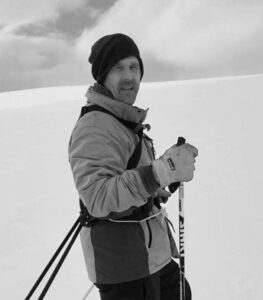Robert Lynch, Ph.D.
Postdoctoral Scholar: Department of Anthropology, Pennsylvania State University
Faculty Affiliate: Population Research Institute, Center for Human Ecology
I am a bio-cultural anthropologist, specializing in how biology, the environment and culture come together to shape human behavior and life history outcomes. I received my PhD at Rutgers advised by Robert Trivers doing research in Iceland on the effects of parental investment on life history outcomes such as reproduction and lifespan. My current research with the Shenk Research Group at Penn State is centered around seeking to understand how religion increases cooperation which can lead to higher fertility and greater social mobility. Previous research with Virpi Lummaa on the Human Life History Project in Finland sough to understand the impact of immigration on life history traits, while my time at the University of Missouri was spent analyzing Napoleon Chagnon’s extraordinary database of previously uncontacted Yanomamo Indians from the Amazon rainforest.
Current Work
MY RESEARCH INYERESTS FOCUS ON THREE QUESTIONS
- How do religious beliefs and practices impact parental social networks and thereby affect the wealth and health of their children when they reach adulthood?
- Which conditions at birth (e.g. parent’s education, wealth, genes, neighborhood, race, gender) best predict socioeconomic, lifespan and fertility outcomes in adulthood?
- What is the evolutionary purpose of laughter and humor?
My current research with Mary Shenk at Penn State is focused on trying to understand the how religious beliefs and practices impact social capital – the shared norms, common values, trust and reciprocity within groups – and overall cooperation. In modern societies religious affiliation is strongly connected to positive outcomes for children despite the higher reproduction of their religious parents which results in them having more siblings. As societies have developed and modernized these differences between secular and religious families have increased and this effect has been called ‘the paradox of religious fertility’. The reasons for it are unknown but a key to explaining it lies in understanding religion in a broad global context of modernization which has seen a recent rapid decline in births across many developed and increasingly secular countries. This so called fertility crisis is occurring in the midst of globalization, urbanization, rapid technological changes and declining social capital across most of the world. My research with the Shenk research group aims to understand how religious communities promote cooperation and seem to be able to preserve social networks despite these countervailing global trends. Using Christian, Hindu, Jewish, Mormon, Muslim and secular participants from five different countries I plan to test how the religious practices and or beliefs of parents are able to sustain social capital and thereby achieve the positive social, economic and health outcomes of their children.
Recent projects and papers include studies showing how immigration affects social networks (i.e. bonding and bridging social capital), a confirmation of a key prediction of life history theory that children adaptively respond to stress and higher mortality by expediting their reproductive schedules and an analysis of how women participating in war can lead to something called ‘identity fusion’ whereby individuals increasingly anchor their identity to a larger group (e.g. the nation). I also have papers in review connecting measures of declining social capital with the rise of populism in the United States and another testing and showing support for the ‘cultural adaptation hypothesis’ that humans use social learning and rely on social networks to adapt to novel environments when they migrate. Much of this research has relied on Bayesian statistical techniques to analyze longitudinal and population-based genealogical databases.
Other projects have sought to understand the evolutionary origins of common cross-cultural prescriptions and norms such as cross cousin marriage, parental preferences for same sex offspring and tradeoffs showing the fitness costs of having additional siblings. Finally, I have studies designed to understand the evolutionary function of humor which show a positive association between laughter and beliefs and a connection between one’s degree of self-deception and their impaired ability to detect humor.
Lynch, R., Lummaa, V., Briga, M., Chapman, S. N. & Loehr, J. 2020. Child volunteers in a women’s paramilitary organization in World War II have accelerated reproductive schedules. Nature Communications.
Lynch, R., Lummaa, V., Middleton, K.M., Panchanathan, K., Rotkirch, A., O’Brien, D., Danielsbacka, M. and Loehr, J. 2019. Integration involves a trade-off between fertility and status for World War II evacuees. Nature Human Behaviour.
Robert, L., Virpi, L. & John, L. 2019. Self sacrifice and kin psychology in war: threats to family predict decisions to volunteer for a women’s paramilitary organization. Evolution and Human Behavior.
Lynch, R. F. Chagnon, N. A., Shenk, M. K., Hames, R. and Flinn, M.V. 2017. Cross-cousin marriage among the Yanomamö shows evidence of parent–offspring conflict and mate competition between brothers. Proceedings of the National Academy of Sciences.
Lynch, R. F. Parents face quantity–quality trade-offs between reproduction and investment in offspring in Iceland. 2016. Royal Society open science.
Lynch, R. F. & Trivers, R. L. Self-deception inhibits laughter. 2012. Personality and Individual Differences.
Lynch, R. It’s funny because we think it’s true: laughter is augmented by implicit preferences. 2010. Evolution and Human Behavior.
